DEA Controlled Substance Regulations
The Drug Enforcement Administration (DEA) enforces the federal laws and regulations under the Controlled Substances Act. The Act classifies the controlled substances into five schedules based on their medical value, risk of addiction and ability to cause harm.
Schedule I Controlled Substances
Drugs like LSD, heroin, marijuana, methamphetamine, etc. have the highest potential for abuse and addiction without any medical use. They can be obtained only under a special application for specific research projects.
Schedule II Controlled Substances
Drugs like fentanyl, hydromorphone, pentobarbital,morphine and oxycodone are used to treat severe pain, anxiety, insomnia and ADHD but entail a high risk for physical and psychological dependence.
Schedule III Controlled Substances
Drugs like benzphetamine, ketamine, phendimetrazine and anabolic steroids that are used for pain control, appetite suppression or anesthesia can lead to psychological dependence, but have lower potential of misuse than Schedule I and II.


Schedule IV Controlled Substances
Drugs like alprazolam, carisoprodol, clonazepam, lorazepamand tramadol are considered to have an even reduced capacity for misuse or addiction.
Schedule V Controlled Substances
Cough medicines with codeine, antidiarrheal medications with atropine/diphenoxylate, pregabalin and ezogabine are the least likely to be abused, but still need to be managed appropriately and administered with care.
All entities that handle controlled substances – be it pharmacies, physicians, hospitals, manufacturers or distributors – are obliged to comply with the rigid controlled substance regulations. The entire process of ordering, storing, dispensing and recording the said controlled substances will be under the scanner at all times.
The DEA controlled substance regulations cover:
Registration – Registering with the DEA and obtaining a DEA license is mandatory if you intend to work with controlled substances. The process is complex and failure to comply with any of the requirements allows the DEA to declare the application as defective. Moreover, registrants have to renew their license on a regular basis. This extends to veterinary DEA regulations as well.
Record keeping – Controlled substance regulations involve a minefield of documentation such as forms, receipts, invoices, inventory records, etc. You will have to account for each and every scheduled drug, preserve the records for a minimum period of two years and keep them readily available for DEA review upon request. Maintaining complete, accurate and up-to-date records remains a highly complicated process with scope for a lot of inadvertent errors.
Reporting –As a DEA registrant, you will have to regularly transmit copies of the order forms to the DEA. The controlled substance regulations also require you to report any kind of thefts, significant loss and suspicious orders. Information about transfers and disposal of the scheduled drugs has to be submitted to the federal agency as well.
Security – It is mandatory to establish effective security measures to prevent theft and diversion of controlled substances from your premises. The controls include physical security requirements, limiting access to specifically authorized employees, etc.
Non-compliance with the DEA controlled substance regulations will invite disciplinary action like warning letters, fines or revoking the registration. Serious violations can lead to criminal proceedings and imprisonment.
How We Can Help?
In the reigning atmosphere of heightened enforcement and scrutiny, it is a challenge to get the DEA registration and ensure ongoing compliance afterwards. Our professional compliance services can assist at every level - from assessing eligibility for registration and preparing the registration applications to applying for renewal of registration.
Being well-versed with the security requirements for storing controlled substances, prescription pads, forms, etc., we will help you design and implement a foolproof security program. We can also partner with you to initiate a system to detect suspicious orders and report them to the DEA.
In fact, we specialize in developing customized compliance policies and procedures in keeping with the specific operations of your facility. Preparing for and managing DEA registrant inspections is our forte.
This is just the tip of the iceberg of both the DEA controlled substance regulations and our compliance services. We will ensure that your practice/facility stays compliant with the entire gamut of regulations. We maintain accuracy and consistency at all times. The smallest of lapses will be duly investigated and prevented from recurring.
With us by your side, you will find yourself free of the compliance headaches and can carry on with your work in a safe and legal manner!
Why do I need TITAN? My practice has never had any issues.
The current opioid crisis has dramatically increased drug-diversion activities. Whether it’s a trusted employee, long-time client or even a relative, your company is more likely than ever to be at risk. And, ramped-up scrutiny and oversight from the DEA and state regulatory agencies have also increased your chance of an audit.
I only use a few controlled substances. Should I be concerned?
Whether you use one controlled substance or 100, the rules and regulations are the same. You face very specific security standards and recordkeeping requirements, and no matter the volume of controlled substances you purchase and use, failure to meet these requirements can have significant financial and legal consequences.
